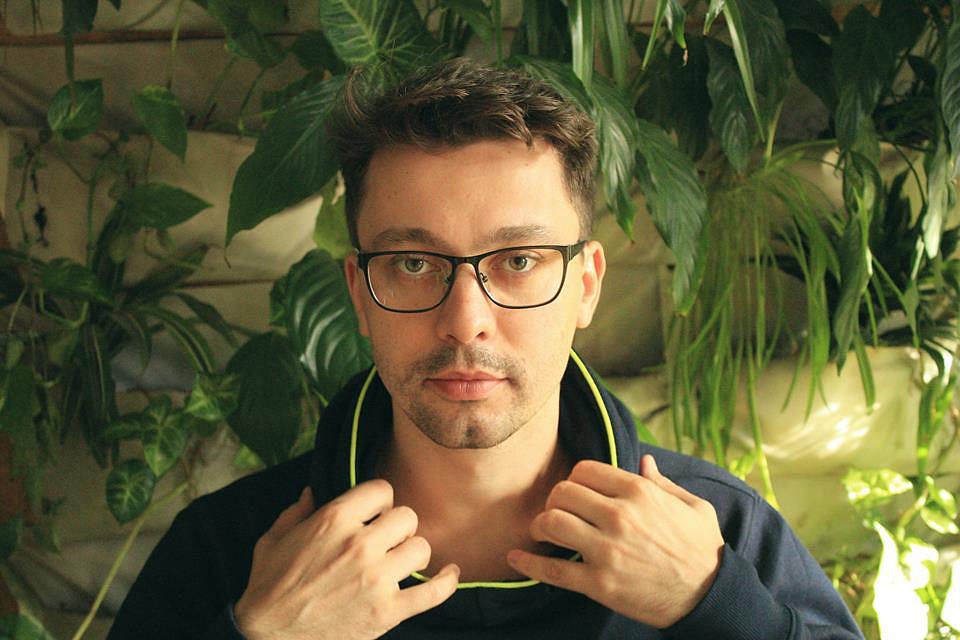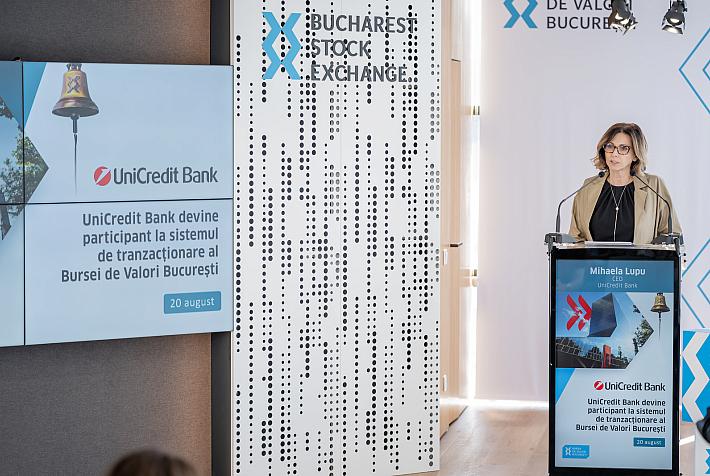Making theater: a computer game, a hunt, a love

A young Romanian movie director tries to keep theater connected to real life.
On the first rehearsal days for a new play, 26-year old Romanian theater director Andrei Majeri never asks the actors to read their scripts. In theater it normally goes like this: after casting, actors get the screenplay and read their parts aloud.
But the young director prefers to act as an uncommitted, vague DJ. He plays music and the actors have to dance for hours. The music ranges from traditional folk music to the classical repertoire, rock or oriental music.
Going to casting is like going on a first date, and the actors only show their good sides. Charm is the commodity most traded during the first encounter. You have to convince and sell yourself, and honesty is not part of the script. Take the part, make the other one fall in love with you. The truth can wait.
“But I don’t need only his best part, I need to see him (the actor) in his entirety,” says Majeri. “The tired body does not lie.”
The bond between the director and the actors is the most important thing in a play, Majeri believes. “The cast accounts for 90% of the play.”
Death and reincarnation in theater
It’s a Sunday afternoon, late October and people in this crowded Bucharest cafe are engaged in constant moving and loud talking. A beer to this table, a glass of red wine to the table in the back: waiters make sure that alcohol smooths the way into a nice evening for the people in the room.
There are some small islands of tea and hot chocolate in the café. Andrei Majeri, seated on a tall chair, with a big cup of tea in front of him, is one of these exceptions. In two hours, he’ll go to see The Cherry Orchard, directed by Lev Dodin, at the National Theater of Bucharest, and he likes to be clear-headed when he watches a play. This time Majeri flew from Cluj-Napoca to Bucharest just to watch the play. Two weeks before, he had came to Bucharest because his play Death and Reincarnation as a Cowboy, written by the Spanish director and screenwriter Rodrigo Garcia, ran at the Nottara Theater in Bucharest.
Majeri loves the theater, not only from the director’s chair, but also from that of the viewer. At the same time, he is always critical about it and the danger of creating plays that are disconnected from humans and reality. In the last two years he directed six plays, which brought him several national awards.
“Not enough,” the young man says about the number of plays he directed.
“I am obsessed about the passing of time. However, I don’t believe that you need to stage shows non-stop. You also need to live, not only to make theater. Otherwise, you’ll be making theater about theater and you’ll be a carrion.”
Andrei is not afraid of death, but he's afraid of death in theater.
“I stand for a sort of fragmented way, a fight against the style. In art, once you have a style, you are dead, you are a museum piece. Theater, in particular, is an art of the moment,” he explains.
For Majeri, a play should be like a computer game or like a hunt, with levels. It needs to take you to the next level, and then to the next. If he doesn’t like a scene, he just cuts it. “I don’t want to get bored. It (the play) needs to keep you out of breath, it needs to have the surprise element.”
“I believe a lot in construction. For me, construction means stage mathematics, stage geometry,” he says. “You need to create a world. (...) I hate props and objects that are hyper used in theater: chairs, tables, beds. When you put a chair on stage the actor will sit on it and will do the same three things you saw in a thousand performances. I believe in bringing new objects on the stage.”
The lego-costumed queen
Andrei is tall, slightly pedant, and a natural-born rioter. His neat shirts and sweaters coexist with acid, open comments about the ideas and people he dislikes. He’s also openly critic about the myths related to Creativity and Ideas, written with capital letters.
“I believe that everyone has ideas. I had a colleague at university who avoided telling his ideas- when we were being asked about our directorial ideas- out of a fear of being copied. I myself was once copied, but what was I stolen? An idea? It didn’t come from him in the first place. Ideas exist, but ideas don’t make art. The communication with the person you work with makes art. I make my art in the rehearsals.”
Still, Majeri is very disciplined when it comes to ideas. “I always sleep with a piece of paper and a pencil near my bed, and I have 800 notes in my phone. If I open the desktop, you’ll see that I have folders of 20 plays, some I’ll probably never make, some I’ll make in 20 years and some I’ll make next spring.”
Some of the ideas turn into projects after several years. It’s like these thoughts are kept in some hidden shelves of the mind, and sometimes, they just outgrow the shelf and come to the surface. Six years ago, Majeri read an absurd theater play called Ivona, Princess of Burgundia, written by Witold Gombrowicz.
He liked it, but he had no clear idea about how he could make a theater show out of it. And then last year he saw life-size figurines of Darth Vader made of legos in a Bucharest mall. This triggered an idea about the play, a frame for developing the show. The whole story of the princess of Burgundia became a game played by kids. The sets were made from lego pieces, including the queen’s corset.
“The text is about the palace world. Ivona arrives at the court and she is a strange appearance. Everybody is intrigued because she doesn’t talk, although she is not mute. Then the prince says that he’ll marry her just to annoy the court. At the end they kill her. I somehow found in this story the wickedness of children playing, that wickedness related to competition, to play. And I saw Ivona as an outsider, someone outside the game.”
The plants’ lessons
“At the moment the theater is the thing that I most love,” Majeri says. “But maybe in ten years it will wear off. It will leave me. Inevitably at some point you will repeat yourself and you won’t speak anymore in the people’s current language. You’ll become a piece of museum and I don’t want to turn into a piece of museum.”
Maybe some day, something will be more important than theater, he adds. Maybe gardening.
“I have a huge passion for plants. I love to keep my hands in the dirt,” Majeri says.
He has a collection of 80 cactuses, a ginkgo biloba tree, a kiwi tree, an olive. Plants are not only symbols of life, he explains.
“If a plant doesn’t grow, it is a lesson that I’ve done something wrong, too much water, too much sun. I learn a lot from there, same as I learn from my nephews that I love very much. I even play Pokemon Go became of them. It’s important to expose yourself to all sorts of things. Theater is very risky because in our area you get to talk only about theater with theater people.”
By Diana Mesesan, features writer, diana@romania-insider.com
Photo by Adina Lazar











